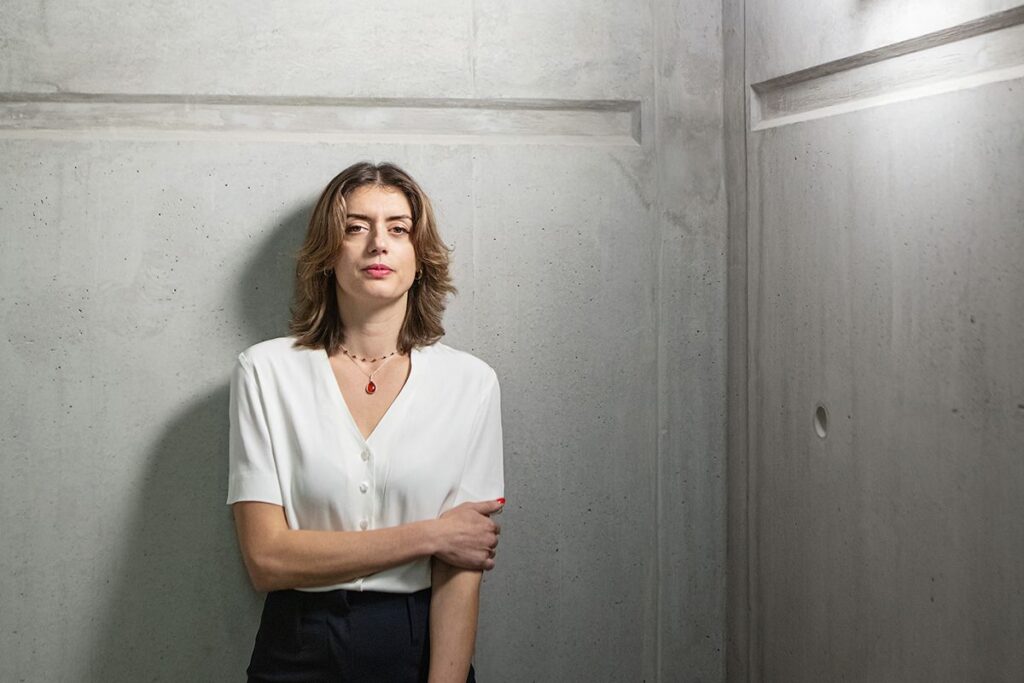Where do you think there is room for improvement in education? “I think lectures are outdated. Nowadays, all the information is already out there, we’re drowning in it. I think the challenge is finding what tools we can give students to navigate this information and build knowledge, instead of starting with powerpoint slides. It’s important to help them shape the world we live in, and maintain a continuous dialogue about their needs.”
Do students actually know what they need? “If you introduce things like active learning or education with playfulness, they might think: ‘I paid for this education, I need a specialist or a professional to teach me what they know so that I can become a professional.’ This is what we’ve been taught what education looks like. We need to co-create a space for everyone to challenge their own assumptions. A fresh students’ perspective is invaluable, their out-of-the-box thinking essential. We tell each other that there are no wrong questions, but are we really giving students enough room to make mistakes and learn from them when we simply apply knowledge and give them an exam at the end to test their knowledge?”
That form of education might be the most efficient for teachers though, right? “If time is already limiting, teachers might think there’s no time to meet with people and work together on making good education. On the other hand: if you have little time, you shouldn’t be doing it alone. The Centre for Teaching and Learning aims to create a community of teachers, researchers, students and education trainers to work together. I think this question touches the root problem: we’re asking researchers to teach on the side even though that’s maybe not their passion. Ideally, researchers with a passion for education would get the room to teach more, and those not willing to are not forced to.”
Centre for Teaching and Learning (CTL)
The CTL is the central expertise centre of the VU for exchanging knowledge, ideas and experiences regarding educational development. It aims to support educators and students to foster growth and effective learning.
Isn’t that an unrealistic luxury, especially with the upcoming budget cuts in education? “First off, I think we should resist the budget cuts. But if anything, they force us to think creatively, to rethink how we’re doing things. If researchers can just be researchers, and educators can be educators all the while cross-pollinating ideas and skills, this might actually be more efficient. There will always be people that say: ‘we don’t have the resources or the time or the team to do this’. I think the biggest crisis in our society is not being able to think beyond limitations. We have to think radically, open new doors, walk a different path, have an open mind.”
Do you feel like VU accommodates that state of mind? “It’s a complex institution. When I was a junior lecturer, I had a lot of ideas but it sometimes was hard to make them happen in my role. I decided to still do those things that went beyond my title because I was passionate about education. I think VU wants to be a place that creates space for being open-minded. It’s easy to say: ‘Ah, they’re an institution that just says things because it sounds good’. But what if we actually embrace the vision VU says to be working towards and we use it to make changes happen?”
“Looking back at your studies, you’re probably not going to remember that quiz you did in your second year. You’re going to tell me about that one teacher that made you do a free writing exercise, about the people that gave you space to learn from your mistakes, about the interactions you had and how you felt. That’s when you learn the most: through life, when you’re learning from others, when you’re fully engaged with the content, when you see the relevance of what you’re studying in society and in yourself.”
